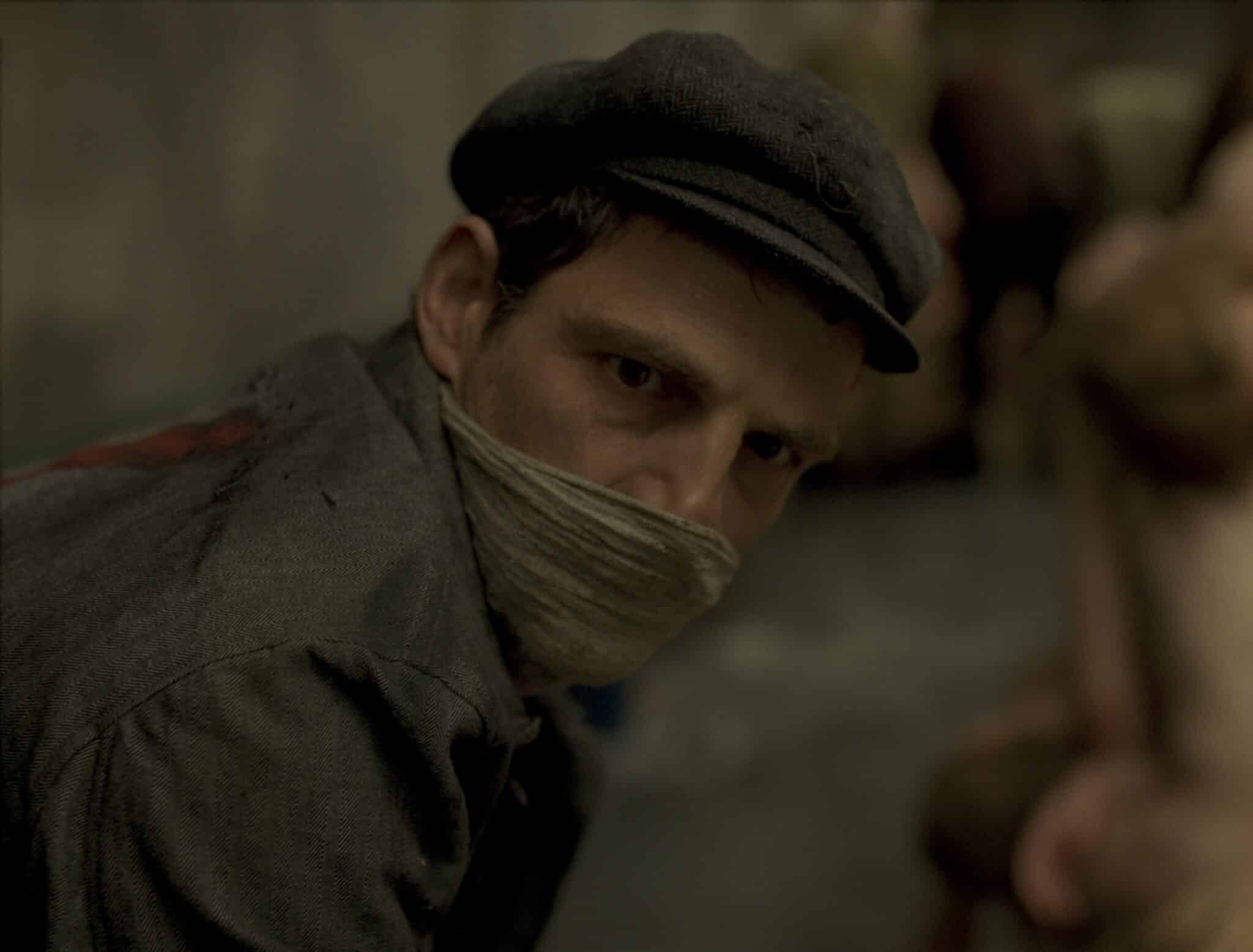And the Oscar goes to … Son of Saul, Hungary.
Son of Saul has been an enormous success so far. Before the Oscar it was awarded a Golden Globe, and the Grand Prix at the 68th Cannes Film Festival last year. The film, which has attracted mostly five-star reviews, is the debut of its 39-year-old director, László Nemes Jeles. His film has the power of Lajos Koltai’s Fateless tackling the same subject from a different angle. Debut films rarely get chosen for the main competition at Cannes unless they’re extraordinary. A first feature film that manages to land and win in the competition in Cannes has done something right and László Nemes Jeles’s film proved to be really extraordinary. It’s not just another Holocaust film but something really special.

Nemes’s film focuses on the experiences of one man, a member of a concentration camp Sonderkommando – prisoners forced to work for the Nazis helping to load corpses of gassed inmates into cremation ovens. Set in the Auschwitz concentration camp near the end of World War II, almost every frame of the film is centered on the main character, Saul Ausländer (Géza Röhrig). He is a Hungarian Jew forced to assist the Nazis as a member of the Sonderkommando. The film begins with a group of scared new arrivals ushered into a room where German soldiers force them to take their clothes off. Then they are shuffled into the gas chamber, and the door is closed behind them. Saul and his fellow Sonderkommandos have to stand against a door that holds in the poison, but not its victims’ screams for help.
Nemes Jeles and his cinematographer Mátyás Erdély shot the film in a unique way. They never let the camera leave its subject. Saul never leaves the viewer’s sight. We can follow him, for instance, as he drags bodies out of the gas chamber. For most of the film the director shows us Saul’s agonized face. Sometimes we see his back, with the red X marked on his jacket to indicate his status. The scenes are often shot in sickly greens and yellows and with deep shadows.
The monotony of Saul’s existence is shaken when a boy is found breathing while the gas chamber is emptied. Saul becomes transfixed on the boy. A doctor is called in and stops his breathing, but there is something about the child Saul can’t dismiss. He volunteers to bring the body up to an examination room where he’ll be autopsied. For some reason, Saul is horrified at that prospect and cannot let it happen. He begins a dangerous personal mission to find a rabbi to arrange a proper burial for the boy.

Although not directly stated, the film appears to happen around October 1944, when Sonderkommandos learning about their impending extermination undertook a long-planned revolt against their Nazi captors rising up and destroying the crematorium.But Saul keeps being focused on his own plan to pay the last honours to a son he never could take care of before, making his burying a greater importance than his own escape. When another prisoner asks why he cares so much about the boy’s body, Saul replies, “He’s my son.” This response brings along an astonished look as his fellow Sonderkommando insists he never had one.
What is the explanation for this behaviour? Is Saul holding on to a semblance of humanity like this? Does he feel providing the boy a proper burial would atone him of the guilt he feels working in the camp? The director leaves it for the viewers to decide. Not everything is explained, nor should it be. It’s an extraordinarily powerful, often hard to watch film.
Saul’s character is performed by Géza Röhrig. Saul has few lines. Most of his acting has to be conveyed through his facial expressions or visible emotions. This is a tough task considering he’s on screen for almost all of the film’s 1 hour and 47 minute running time. But he acts brilliantly even though Son of Saul is his first film ever. His face fills almost every frame of the film.
The director says he was drawn to the actor because “his facial features and his body are always changing. It is impossible to tell his age, for he is at once old and young, but also handsome and ugly, ordinary and remarkable, deep and impassive, quick-witted and slow. He moves, is given to fidgeting, but knows how to keep silent and still.”
Géza Röhrig was born in Hungary. His father died when he was four and after some years in an orphanage he was adopted, aged 12, by Jewish friends. He studied Polish literature then film direction, lived in Jerusalem before moving to Manhattan in 2000. He now teaches, writes poetry and is working on his first novel, Dead Bread.
László Nemes Jeles (born in 1977) grew up in Paris. He is the son of film director András Jeles. He got interested in filmmaking at an early age, when he made horror films in the basement of their Paris home. He started working as an assistant director in France and Hungary on short and feature films. For two years, he worked as film director Béla Tarr’s assistant.
Vocabulary
review | kritika |
debut | debütálás, első bemutatkozás |
Fateless | Sorstalanság |
to tackle | foglalkozni valamivel |
from a different angle | más szemszögből |
feature film | játékfilm |
corpse | holttest |
gassed | elgázosított |
cremation oven | krematórium |
frame | filmkocka |
to usher | bevezet, betessékel |
to shuffle into | átvezetni |
gas chamber | gázkamra |
poison | méreg |
victim | áldozat |
scream | üvöltés, ordítás |
cinematographer | operatőr |
unique | egyedülálló, különleges |
to drag | húzni, vonszolni |
agonized | elkínzott, szenvedő |
shadow | árnyék |
to be transfixed | megbabonázva lenni |
to autopsy | felboncolni |
burial | temetés |
impending | fenyegető, küszöbönálló |
extermination | kivégzés, kiirtás |
to pay the last honours | megadni a végtisztességet |
escape | szökés |
astonished | elképedt, csodálkozó |
fellow | társ |
semblance | látszat |
to atone of | feloldozni valami alól |
guilt | bűntudat |
to convey | közvetíteni, átadni |
facial expressions | arckifejezés, arcjáték |
to be drawn to | vonzódni |
facial feature | arckifejezés |
remarkable | figyelemre méltó |
impassive | közönyös, érzelmektől mentes |
quick-witted | gyors észjárású |
to be given to | hajlamos valamire |
fidgeting | ideges nyugtalanság, babrálás |
orphanage | árvaház |
to adopt | örökbe fogadni |





